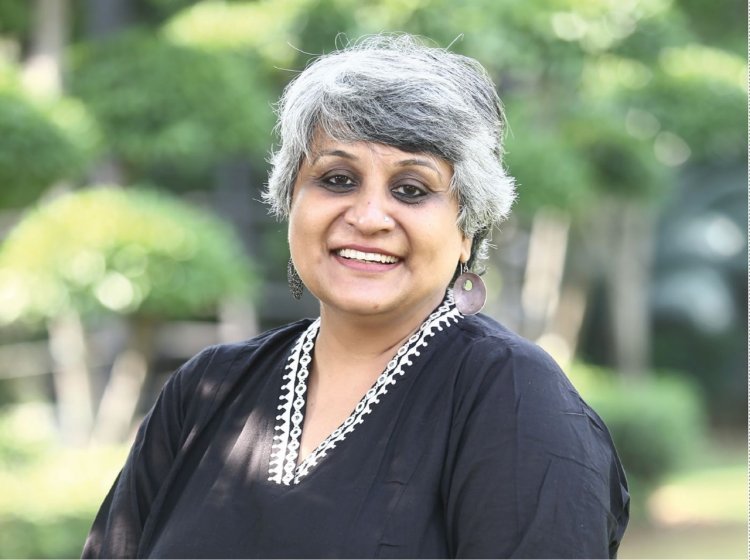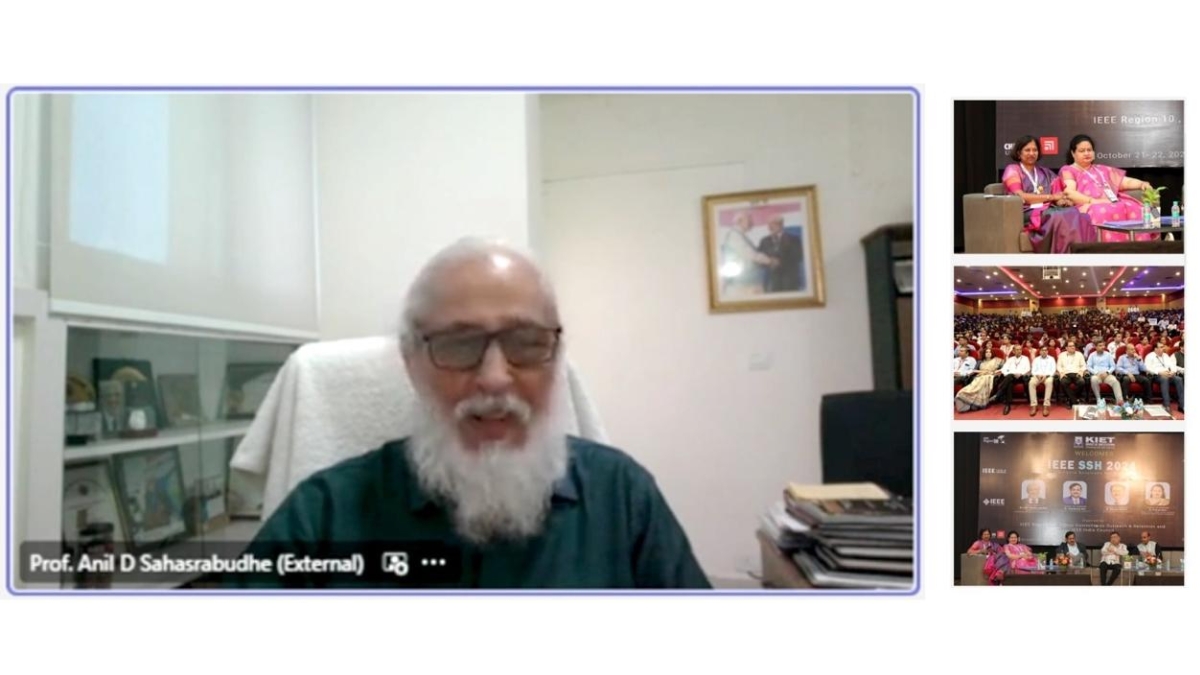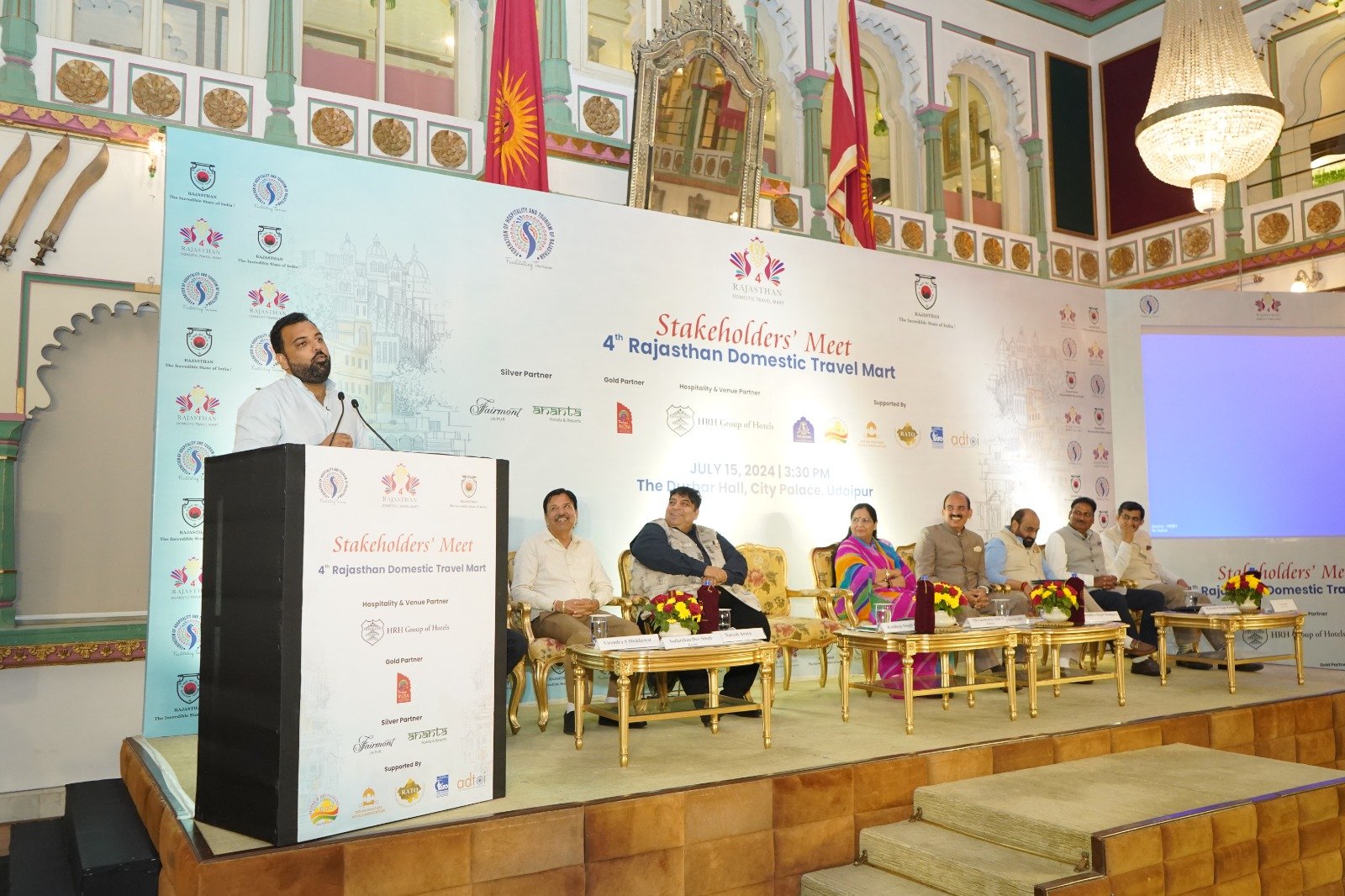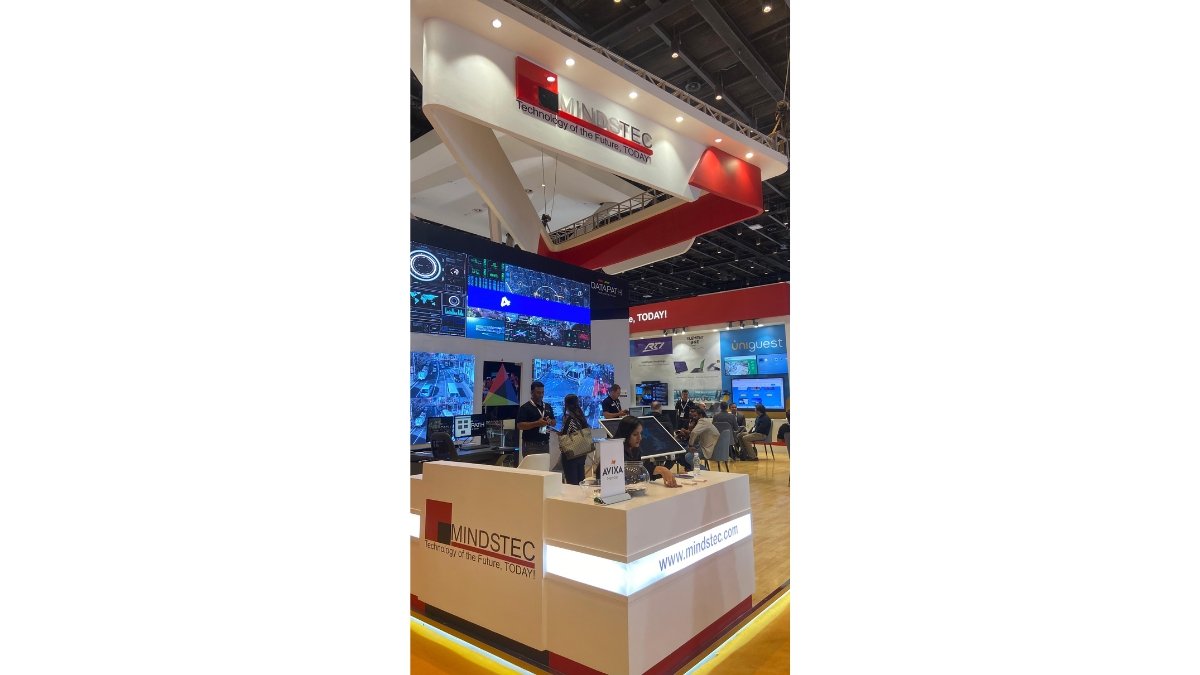The Syllabus For A Compassionate Future

Academic performance in schools and the education system has always been a prime consideration of an individual's intellectual and professional potential. It is understood that higher marks lead to better opportunities, paving the way for a secure future.
However, over the past decade, it has become increasingly apparent that children, after graduating from schools with high grades, and landing traditionally “secure” jobs across sectors, struggle with cornerstone professional skills like coping with stress, empathetic peer interaction, compassion for self, and resilience.
This discovery, globally, has sparked a conversation on re-envisioning the educational landscape. Why are students finding it difficult to learn? Is it anxiety or a sense of uncertainty about the future? Or is there something more?
Read on for a sit down with Monal Jayaram, Co-founder and Director, School of Education and Systems Change (SOESC) at the Piramal Foundation. In this interview, we explore the approach SOESC has taken to mitigate this crucial gap to achieve transformative results.
Q I. What are some of the challenges that you see impacting children’s education in India today?
A: Three questions drive our work at the School of Education & System Change at Piramal School of Leadership. First, why are children unable to read and write despite intense country-wide efforts? Second, will focusing only on reading & writing make children future-ready? And third, how can school systems transform to realize that 21st-century education cannot be delivered through 20th-century thinking, behaviour, and systems? In fact, in one of his speeches, PM Narendra Modi too has made a note of this.
We work with eight hypotheses built over the last 15 years as to why students aren’t learning. And we realize that it stems from their difficult backgrounds. There is violence, abuse, trauma, and neglect that impact a child, which is called Adverse Childhood Experiences (ACE). Research shows that children affected by ACE have a lower brain functioning capacity, further impacting learning problems.
Then there is the additional layer of social discrimination based on religion, caste, and gender. Child labour and child marriages are still relevant in India. In pure numbers, as many as 4.35 million children aged between 5 and 14 years are still caught in child labour (Census 2011). Nearly one in five young girls in India is married before they turn 18, often dropping out of school as a result.
As we move towards a Viksit Bharat, we have to understand that Foundational Literacy and Numeracy (FLN) is not enough - we have to make a conscious shift towards building 21st-century Competencies. Imagine a school system that enables students to build an entrepreneurial mindset, where their agency and problem-solving skills are nurtured so that tomorrow, they can create jobs for themselves. Most importantly, the underlying factor as we make a shift towards an unprecedented future is to build agency, resilience, and compassion in students.
Q II: What is unique about SOESC’s approach to addressing these gaps and transforming the education landscape?
A: At the Piramal School of Leadership, our education systems transformation thinking is established in three layers. The first is 21st Century Education which unlocks agency in children and prepares them for the future. The second is Leadership Development and Personal Transformation, which unlocks agency among Middle Managers from government systems; and the third is Organization Development of Government Institutions to transform institutional culture with compassion and Sewa Bhaav.
We have evolved seven potential solutions - Social, Emotional, and Ethical Learning (SEE Learning), Project-based Learning, Aesthetic Literacy, Physical Literacy, School to Work, Compassionate Gender-transformative Education, and Digital Literacy. Our solutions are integrated into the government system to make a sustainable impact. This happens via processes like assessment reform, scholarship reform, reforms in the State Institute of Educational Management and Training (SIEMAT), State Council of Educational Research and Training (SCERT), and District Institute of Educational Training (DIET), process reengineering, and governance reform.
Over the last 15 years, our interventions have demonstrated behavioural change across middle managers and teachers and achieved improvement outcomes in 21st-century competencies, like critical thinking, compassion, and life-long learning.
Solutions like SEE Learning have shown over 11% improvement in students’ 21st-century competency scores, and solutions like Project-Based Learning have shown over 20% improvement in student performance from middle and secondary schools in Language, Math, and Science.
Our approach has enabled us to work in 91 districts across eight states. We collaborate with over 200 state institutions, 1.6 lakh schools, 12.5 thousand Middle Managers, and 6.5 lakh teachers to serve approximately 1.2 crore children.
Q III. Why do you think India, particularly Rajasthan, needs SEE Learning today?
A. The world we live in is becoming more dynamic. The ever-evolving technology landscape, the impending climate crisis, and the resulting shift in the job market requirements are making it important to equip adolescents with life skills beyond the academic curriculum. Students today need to be resilient to varying degrees of change. Our National Education Policy 2020 also highlights the importance of SEE Learning for the holistic development of children.
Specifically, in the case of Rajasthan, we have spoken with education authorities who have themselves recognized that early marriage, early pregnancy, and child labor exist despite best efforts. Officials at the centre and state have also shared a deep concern around rising cases of suicide and related mental health concerns, as well as social-emotional well-being among adolescents. I believe the need for something as revolutionary as SEE Learning becomes apparent even more so.
Q IV: Has the status quo changed since SOESC, PSL jumped into action in Rajasthan?
A: There are different signifiers to how our work in Rajasthan has been transformative. If we look at pure numbers, from operating in only one district (Jhunjhunu) in 2019, today we reach 33 districts across the state.
There are also moving stories of transformation. For instance, there’s one of a 14-year-old girl from Chirawa, Rajasthan. Such was her emotional struggle that the inability to express herself resulted in outbursts of anger and isolation. And then, through our SEE Learning intervention, which we did in partnership with the Government of Rajasthan, she was introduced to grounding exercises. Today, she has acquired the tools to identify and express her emotions effectively.
It’s not just students - even teachers, government officials, and the foundation’s staff, who once grappled with emotional pressures, are transformed today. We can see this transformation even at senior levels within the state education ecosystem. For example, Shri Kamalendra Singh Ranawat ji, the Deputy Director of Rajasthan State Council of Educational Research and Training (RSCERT), was feeling quite overwhelmed with his daily routine. Today, however, he’s a trainer for the SEE Learning program in the state, teaching his colleagues how to build emotional resilience.
Q V. What is the way forward now, from here?
A. I can confidently say that the future of SEE Learning now holds higher promise. Through continued collaboration among educators, policymakers, researchers, NGOs, and communities, we are today better placed to create holistic learning environments. I believe it’s essential to recognize that integrating social, emotional, and ethical learning into educational practice is crucial for cultivating responsible, empathetic, and resilient individuals.










